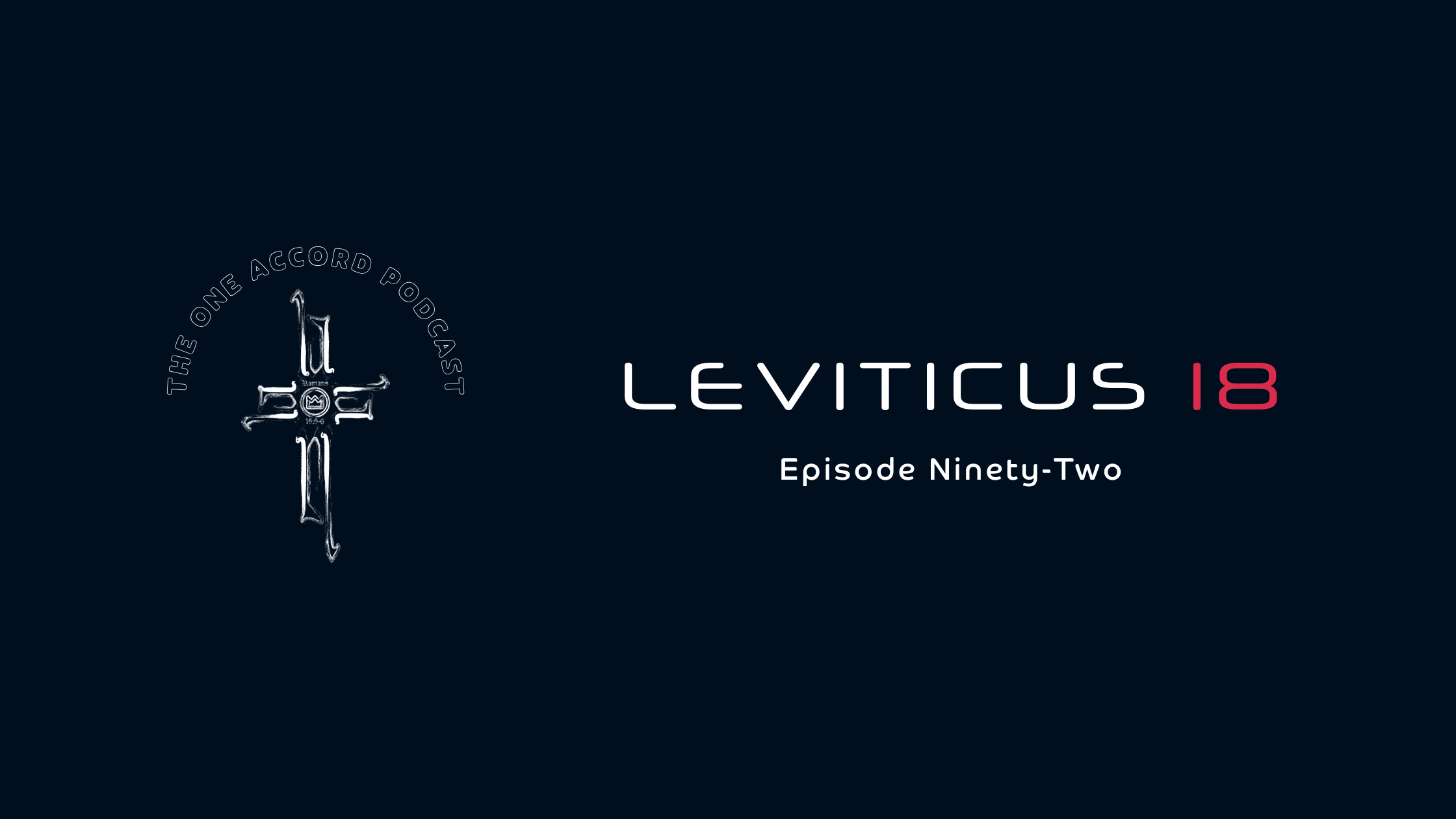Leviticus 18
God's boundaries for sex & family: why holiness matters in relationships & society
Let’s talk about it.
Episode Summary
In this episode of the One Accord Podcast, the hosts delve into Leviticus chapter 18, exploring its themes of morality, God's commands, and the implications of sin. They discuss the historical context of the Canaanites, the distinctiveness of Israel's moral code, and the nature of sin as it relates to human behavior. The conversation also touches on the meaning of 'living' in accordance with God's statutes, the implications of uncovering nakedness, and the complexities of relationships among the patriarchs. The hosts address the controversial topics of child sacrifice and homosexuality, emphasizing the moral standards set forth in the Old Testament and their relevance today. They conclude by discussing the defilement of the land and the connection between sin and the physical world.
Key Takeaways
Leviticus 18 addresses moral distinctiveness for Israel.
God's command to destroy the Canaanites is based on their vile practices.
The laws in Leviticus set a standard for morality that transcends time.
Sin affects both humanity and the physical world.
The phrase 'uncovering nakedness' refers to sexual relations.
The patriarchs' relationships were not necessarily models of obedience to God's law.
Child sacrifice to Molech is condemned by God.
Homosexuality is explicitly forbidden in Leviticus 18:22.
The land itself can be defiled by the sins of its inhabitants.
God's covenant with Israel includes specific moral and ethical standards.

